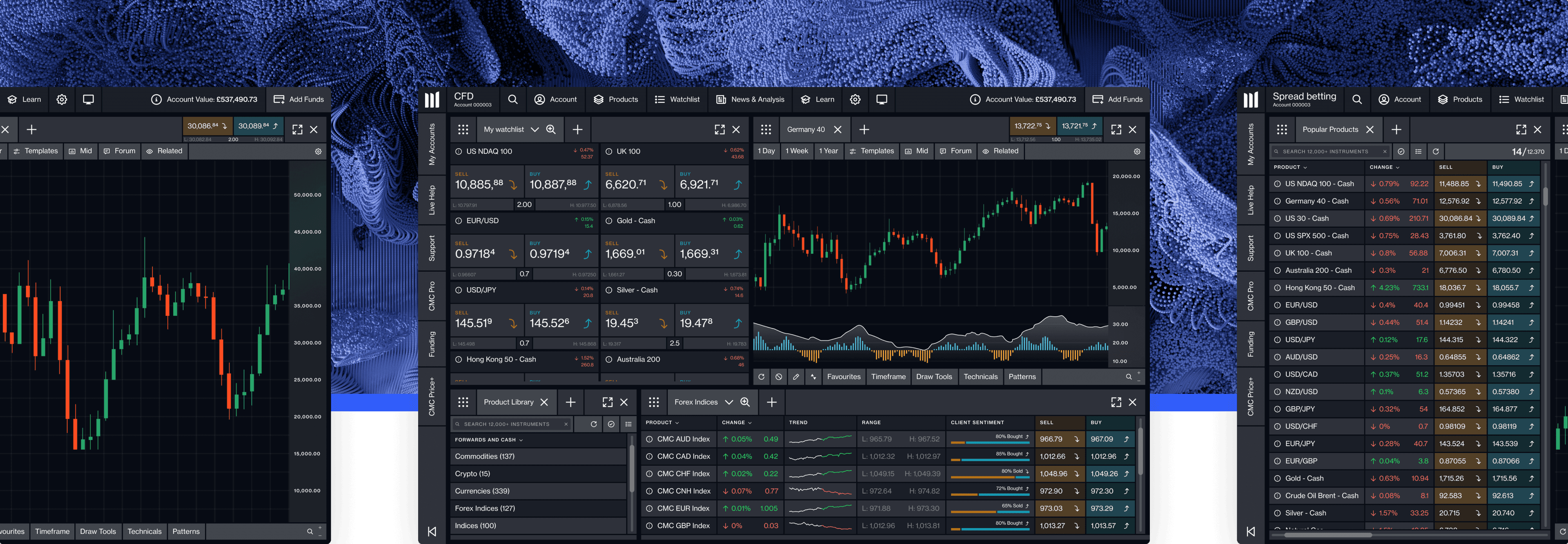
12 types of investment risk explained
There are many risks of investing that can arise from various factors, such as credit, liquidity, politics, longevity, inflation, concentration, horizon risk, and more. By understanding each type of risk, investors can take steps to protect their portfolios against them. In this guide, we’ll cover 12 types of investment risks, with examples and some useful guidance on how to potentially minimise your exposure to them.
What are the risks of investing?
Most people think of investment risk simply as losing money, which is a broad definition. There are many sources of risk in investment that can result in losing money. Because these exist, investors want to be compensated with a risk premium. In other words, the greater the risk, the greater the potential reward should be.When learning how to invest in stocks, investors try to strike a balance between risk and reward. Low-risk investments usually earn little reward but are less volatile, whereas high-risk investments may see higher returns but also carry a risk of losing money.By understanding the sources of risk in investment, investors can better prepare for these and can potentially minimise the impact, finding a risk and reward profile that is ideal for them.
Systematic risk
Systematic risk is unavoidable. It is the risk associated with being invested in the stock market. It can be minimised through diversification, but even a diversified portfolio can drop in any given year. Systematic risk is created by other people’s buying and selling, as well as economic factors.
Non-systematic risk
Non-systematic risk is any risk over and above systematic risk. For example, owning a diversified portfolio of stocks is exposed to systematic risk. Owning only one stock has systematic and non-systematic risk since the stock has credit risk, liquidity risk, concentration risk and so on. Non-systematic risk can be reduced through diversification because if one company in the portfolio goes bankrupt (a non-systematic risk scenario), it has little impact on the overall portfolio.
Inflation risk
Inflation risk is the chance that your return on investment is less than the rate of inflation. For example, if inflation is 7% and your stock portfolio returns 5%, the portfolio is losing 2% in real terms.Historically, stock returns have beaten inflation over the long run, but there are periods of time when they may not.Cash investments, such as savings accounts or very low-risk bonds, often do not exceed the rate of inflation. Therefore, while the risk of losing money in these investments is extremely low, they have a high inflation risk. The rate of return in a savings account is often lower than inflation, which means losing money in real terms, that’s why many people chose to take on a bit more risk by investing their money in the stock market which typically beats inflation.The real rate of return is the return of the investment adjusted for inflation. If an investment returns 5%, and inflation is 6%, the real return is -1%.
Exchange rate risk
This form of risk comes into play when investing in an asset that is priced in another currency. For example, say a UK investor buys a stock in the US. They will be exposed to the risk of the stock as well as currency rate fluctuations.If the US dollar appreciates, this investor owns a rising currency. This will increase the gain on the stock position (or reduce the loss on the stock position). If the US dollar falls, this will decrease the gain (or increase the loss) on the stock position.Exchange rate risk can be fully or partially mitigated by setting up a currency hedge. To do this, sell the equivalent amount of foreign currency used for the stock purchase. Some exchange-traded funds (ETFs) are currency hedged, which means the fund moves based only on the stock price movements, and the currency movements are hedged/negated.
Credit risk
Credit risk applies to credit-based investments such as bonds. A bondholder loans money to a government or corporation, is paid interest, and by the time the loan has been paid off, the bond matures. Credit risk is the possibility that the entity will default and not be able to pay the interest on the bond or repay the amount of the bond at the maturation date.
Liquidity risk
Liquidity risk is when you can’t get out of an investment because of restrictions or because no one else is willing to take the other side of the trade.
This happened during the financial crisis of 2008. Stocks plunged because there were few willing buyers. The same thing happened in real estate and bonds.
Hedge funds and banks may also restrict client withdrawals to avoid a run on their capital.
Political or governance risk
Governments have the power to change the rules related to investing. A change in corporate tax or capital gains taxes could have a significant impact on the market. Elections and the change of government can also pose risks as a new government might be less or more pro-business in their policies or be willing to spend more to achieve growth. General changes in government policy can also have an impact on individual business sectors.
Political risk can also refer to risks related to an unstable government, such as a country that is dealing with corruption issues. There are also geopolitical risks such countries going to war.
Concentrated risk (non-diversified)
Concentration risk is when an investment portfolio is too highly focused on a single stock, sector, or industry. If the stock, sector, or industry does poorly, the whole portfolio suffers.This contrasts with a diversified portfolio, where movements in a single stock, sector or industry may not have a substantial impact on the portfolio.
Reinvestment risk
Reinvestment risk pertains mainly to interest-bearing assets but could also apply to a dividend stock. For example, assume you have a certain yield on an asset, such as 7% per year. The asset is either sold or matures, and then those funds are reinvested in something else. Reinvestment risk is the chance that the rate received will be lower, such as 5%, than the current or prior holding.
Starting in mid-2007, in the lead up to the financial crisis, the Federal Reserve and Bank of England cut interest rates dramatically, to near 0% by late 2008. After the cut, a new investment had a much lower interest rate than the same investment would have had prior to 2008.
Opportunity cost
Opportunity cost applies to everything in life and refers to what we give up when we choose one action over another. For example, buying a stock means those funds aren’t available for the purchase of a different stock. By investing part of a portfolio in bonds means those funds aren’t available for buying stocks or other assets.
Longevity risk
This is the risk of outliving the portfolio or retirement funds. People often save or plan for a certain number of years of retirement. If they live longer than expected, they may outlive their savings/investments.
Horizon risk
Horizon risk is when an investor is forced to sell investments ahead of their planned exit point. This decreases the time horizon of the investment, which may affect long-term portfolio returns.An investor might sell an asset earlier because they have a sudden need for the cash due to an emergency or major life event. This draws money out of the portfolio and may also increase longevity risk.
How can you potentially minimise the risks of investing?
To minimise the various types of risk, consider these approaches when it comes to managing your investment portfolio:
Diversify to help reduce non-systematic risks.
Use currency-hedged ETFs to help mitigate exchange rate risk.
Focus on high-quality actively traded stocks to avoid credit and liquidity risk.
Stock returns typically beat inflation over the long run. Therefore, it may pay to stay invested.
Plan for a long retirement and unexpected yearly expenses (they always come, so budget for them before they happen). It’s better to have more saved than less.
Have a range of investment strategies, rather than just buying assets randomly, as this may result in also accumulating random risks.
Political risk is tricky. Some investors avoid foreign markets with developing political instability, as these stock markets typically fall. The flip side of this is that once stock prices have fallen to reflect the instability and uncertainty. If the situation improves then businesses are likely to do better, and these markets may rise.
Government bonds issued by major nations, such as the UK, US or Germany, are considered low-risk assets since there is little chance that the government won’t pay. High-grade corporate bonds are also low risk if issued by a financially stable company.
The long-term return for the US stock market (as measured by the S&P 500 index) is between 9% and 10% per year, depending on the decades looked at. The average return for the UK stock market (as measured by the FTSE 100 index) is slightly lower, at about 7% to 8% per year. However, remember that past performance is not a reliable indicator of future results.
Disclaimer: CMC Markets is an execution-only service provider. The material (whether or not it states any opinions) is for general information purposes only, and does not take into account your personal circumstances or objectives. Nothing in this material is (or should be considered to be) financial, investment or other advice on which reliance should be placed. No opinion given in the material constitutes a recommendation by CMC Markets or the author that any particular investment, security, transaction or investment strategy is suitable for any specific person. The material has not been prepared in accordance with legal requirements designed to promote the independence of investment research. Although we are not specifically prevented from dealing before providing this material, we do not seek to take advantage of the material prior to its dissemination.

